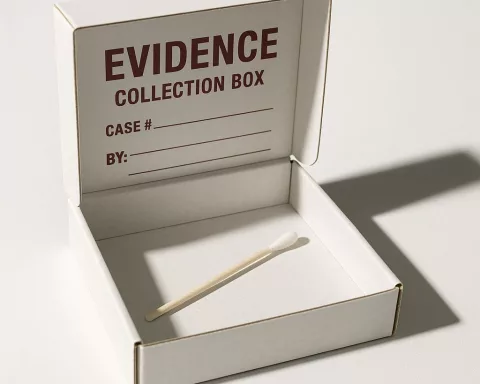The Western Cape’s justice system is facing an increasing number of dismissed cases, particularly those related to gender-based violence. The Court Watching Brief Unit has identified delays in investigations, missing police dockets, and failure to present the accused in court as the main causes for these dismissals. Premier Alan Winde and provincial minister Reagen Allen have highlighted the burden on police officers and the need for a consistently efficient police service. They have also called for a change in SAPS management and emphasized the importance of data-driven strategies to combat crime.
What are the main causes for the increasing number of dismissed cases in the Western Cape’s justice system?
The main causes for dismissed cases in the Western Cape’s justice system include delays by investigating officers in completing investigations on time, missing police dockets in court, and the failure to present the accused in court. These issues have been highlighted by the Court Watching Brief Unit, which aims to pinpoint weaknesses within the justice system and improve efficiency.
Court Watching Brief Unit (CWB) Discloses Alarming Statistics
The Western Cape’s Department of Police Oversight and Community Safety has caught the public’s attention after Premier Alan Winde and provincial minister Reagen Allen released the Court Watching Brief Unit’s (CWB) statistics for the first quarter of the 2023/24 financial year. The CWB was created to bolster the department’s oversight capabilities and aims to pinpoint weaknesses within the justice system. A mounting concern involves the increasing number of cases dismissed from Western Cape court proceedings, especially those connected to gender-based violence (GBV).
Over this quarter, the CWB kept an eye on eight courts linked to 21 priority police stations. These stations were chosen based on the seriousness and regularity of reported crimes in their respective areas. Courts under observation included Khayelitsha, Blue Downs, Philippi, Mitchells Plain, Wynberg, Kuils River, Bellville, and Athlone. It is important to mention that the Kraaifontein Police Station had the highest number of cases dismissed from court proceedings, with many related to GBV.
The main causes for these dismissals involved delays by investigating officers in completing investigations on time, missing police dockets in court, and the failure to present the accused in court. Premier Winde expressed his disappointment, particularly with serious crimes like GBV not getting proper judicial attention.
The Burden on Police Officers
Winde recognized the enormous pressure our police officers face, stating that there simply are not enough officers assigned to the Western Cape to significantly impact crime levels. During the 2021/22 financial year, South African SAPS (South African Police Service) stations needed 193,476 officers. However, only 105,935 officers are currently active. The Western Cape’s sanctioned strength is 21,367, though it stood at just 19,505 in 2020/21.
To address this issue, Winde mentioned the recent launch of the Law Enforcement Advancement Plan (LEAP), developed in partnership with SAPS and other law agencies. He stressed that the approach to combatting crime must be data-driven and evidence-based. By targeting the root causes of crime, such as unemployment, strategies like the Western Cape Safety Plan and Growth for Jobs can be informed by data and evidence.
Statistics from the First Quarter
In the first quarter of the current financial year, 63 cases reported police inefficiencies. A breakdown of these cases shows 26 instances of GBV (41.3%), 20 of assault (31.7%), 10 of rape (15.8%), seven of protection order violations (11%), six of aggravated robbery (9.5%), five of attempted murder (7.9%), and four of illegal firearm possession (6.3%).
Minister Allen emphasized the necessity for a consistently efficient police service, arguing that everyone should receive the same quality of service from SAPS, irrespective of their background. He added that the police service must not cause further trauma to already traumatized residents.
A Call for Change in SAPS Management
Allen also highlighted the need to transition SAPS management to more competent governments. He referred to the LEAP initiative as an example of strengthening SAPS and claimed that once SAPS is under their management, they will ensure that stations and detective services have the capacity to effectively handle these types of cases.
Premier Winde wrapped up by saying that the CWB’s ultimate goal is to cultivate a police force that is skilled, impactful, and well-organized. By enhancing the relationship with SAPS and supporting the men and women in blue, the Western Cape can evolve into a safer and more prosperous province.
As the Western Cape’s justice system grapples with significant obstacles, the CWB’s statistics have exposed the inefficiencies and struggles present in the area’s policing and courts. The collaboration between local governments, SAPS, and law enforcement agencies, such as the LEAP initiative, demonstrates a unified effort to tackle these issues and create a safer environment for all residents.
1. What are the main causes for the increasing number of dismissed cases in the Western Cape’s justice system?
The main causes for dismissed cases in the Western Cape’s justice system include delays by investigating officers in completing investigations on time, missing police dockets in court, and the failure to present the accused in court.
2. What is the Court Watching Brief Unit (CWB)?
The Court Watching Brief Unit (CWB) was created to bolster the Western Cape’s Department of Police Oversight and Community Safety’s oversight capabilities and aims to pinpoint weaknesses within the justice system to improve efficiency.
3. Which police stations were under observation by the CWB?
The CWB kept an eye on eight courts linked to 21 priority police stations, including Khayelitsha, Blue Downs, Philippi, Mitchells Plain, Wynberg, Kuils River, Bellville, and Athlone.
4. Which police station had the highest number of cases dismissed from court proceedings?
The Kraaifontein Police Station had the highest number of cases dismissed from court proceedings, with many related to gender-based violence (GBV).
5. How many active South African SAPS officers are there compared to the number needed?
During the 2021/22 financial year, South African SAPS stations needed 193,476 officers, but only 105,935 officers are currently active.
6. What is the Law Enforcement Advancement Plan (LEAP)?
The Law Enforcement Advancement Plan (LEAP) is a plan developed in partnership with SAPS and other law agencies to address the issue of insufficient police officers and combat crime in a data-driven and evidence-based manner by targeting the root causes of crime.
7. What were the statistics from the first quarter of the current financial year?
In the first quarter of the current financial year, 63 cases reported police inefficiencies, including 26 instances of GBV, 20 of assault, 10 of rape, seven of protection order violations, six of aggravated robbery, five of attempted murder, and four of illegal firearm possession.
8. What is the goal of the CWB?
The CWB’s ultimate goal is to cultivate a skilled, impactful, and well-organized police force by enhancing the relationship with SAPS and supporting the men and women in blue, creating a safer and more prosperous province.












